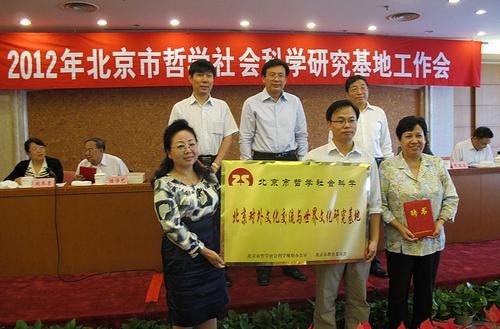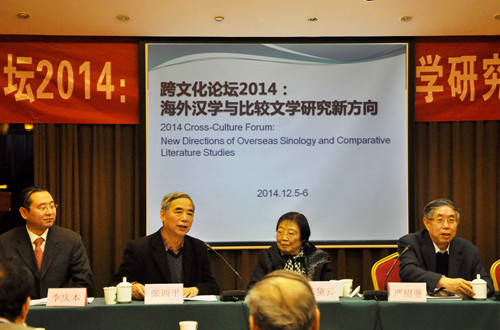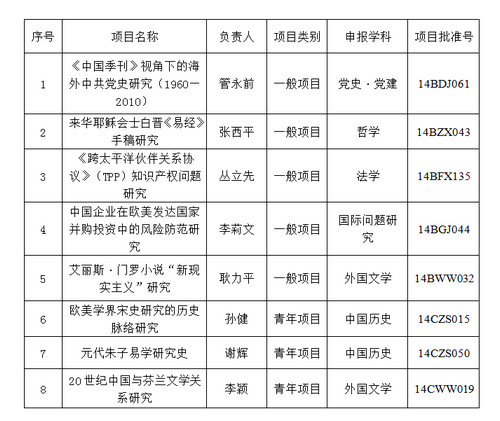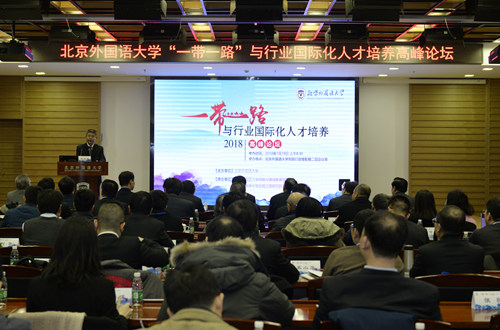"2016 North Foreign China -Central And Eastern European Humanities Exchange Forum" Was Held In Our School
"2016 North Foreign China -Central And Eastern European Humanities Exchange Forum" Was Held In Our School
On October 9th, the "2016 North Foreign China -Central and Eastern European Humanities Exchange Forum" was held in the fifth floor of our school library. This forum is co-organized by the "2016 China-Central Eastern European State Humanities Exchange Year", which was jointly organized by the European Linguistics and Culture Institute and the Ministry of Education's country and regional research and cultivation base. The Central Eastern European Research Center.
Croatia, Latvia, Slovenia and other Central and Eastern European countries in China, the Interim Office and other embassy representatives, some presidents and experts and scholars of some universities in Central and Eastern European countries, as well as the Development Research Center of the Ministry of Culture, the Social Sciences, the State Council, Xinhua News Agency, China International experts from Central and Eastern European issues such as International Radio, Shanghai Foreign Languages University, Guangdong University of Foreign Studies, Capital Normal University, and Diplomatic College attended the meeting. Participants conducted in -depth discussions on issues in the fields of bilateral cooperation, talent training, literary translation, humanities exchange, and history of cultural relations.
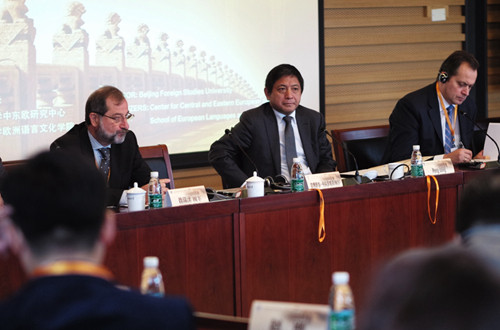
President Peng Long attended the opening ceremony of the forum and delivered a speech. In his speech, Peng Long reviewed the development of cooperation between China and Central and Eastern European countries since 2012, and introduced the participation and important role played in Beiwai's "16 1 cooperation". He pointed out that on the one hand, Beiwai held this forum to adapt to the current needs of rapid development of China -Central and Eastern European countries and better cooperation with China -Central and Eastern European Humanities Exchanges. The advantages of language, literature, country, and regional research have shown the fruitful results of humanistic exchanges in recent years, and attracted more Central and Eastern European scholars to make suggestions for cooperation between the culture and education of both sides.
Croatia Ambassador Noboisa Koharvich, Latvia Ambassador to China Maris Saierga, Slovenia Ambassador to China, Purizer, and other speeches at the opening ceremony. The important role played in educational exchanges and cooperation.
Xu Tao, the director of the Ministry of Education's National Cooperation and Exchange Department, sent a congratulatory letter to the conference. He wrote in He Xin: "Beijing University of Foreign Languages is the most concentrated university in China to train Central and Eastern European linguists, playing an important role in human cooperation in Chinese-Central and Eastern European countries. Cooperation with colleges and universities in Central and Eastern European countries has contributed to the continuous development of cooperation between China-Central and Eastern Europe. "
Vice President Yan Guohua attended the opening ceremony of the forum. The opening ceremony was chaired by Ding Chao, director of the Central and Eastern European Research Center.
In the theme seminars, former Albania Foreign Minister Pascar Milo, Laliana Taza, Vice President of the University of Constant, Romania, Professor Alexander Fedetov, Director of the Oriental Cultural Center of the University of Sovia, Bulgaria, Cai Mengling, Cultural Counselor of the Polish Embassy in China , Hungarian Embassy in China, Cultural Counselor Song Niya, Dr. Pavil Corvarsky, Director of the International Exchange Department of the University of Social Sciences and Humanities and Humanities, and nearly 20 experts and scholars from all units in China made speeches on their respective research fields. Essence
After the speech of the conference, the participating experts conducted a warm discussion. The meeting believes that both China and the Central and Eastern European countries should seize the booming historical opportunities of the "Belt and Road" and China -Central and Eastern Europe's "16 1 cooperation", consolidate the foundation of cooperation, exchange cooperation experience, explore cooperation models, and strive to bring China -China -China -China -China -China -China -China The overall level of humanities exchanges in Eastern Europe is pushed to a new level.
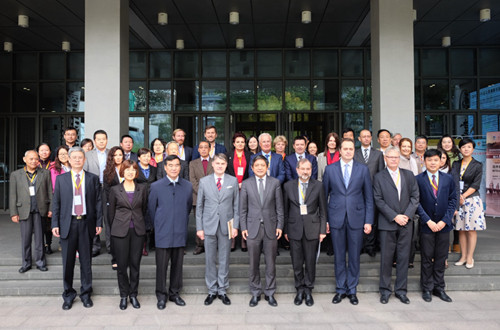
During the Suzhou meeting of China-Central and Eastern European leaders in 2015, 2016 was identified as "16 1 Humanities Exchange Year". Cooperation with academia provides strong support for the establishment of the China -Central Eastern European national education policy dialogue, the China -Central and Eastern European Universities Federation and other exchanges.
(European Academy)


